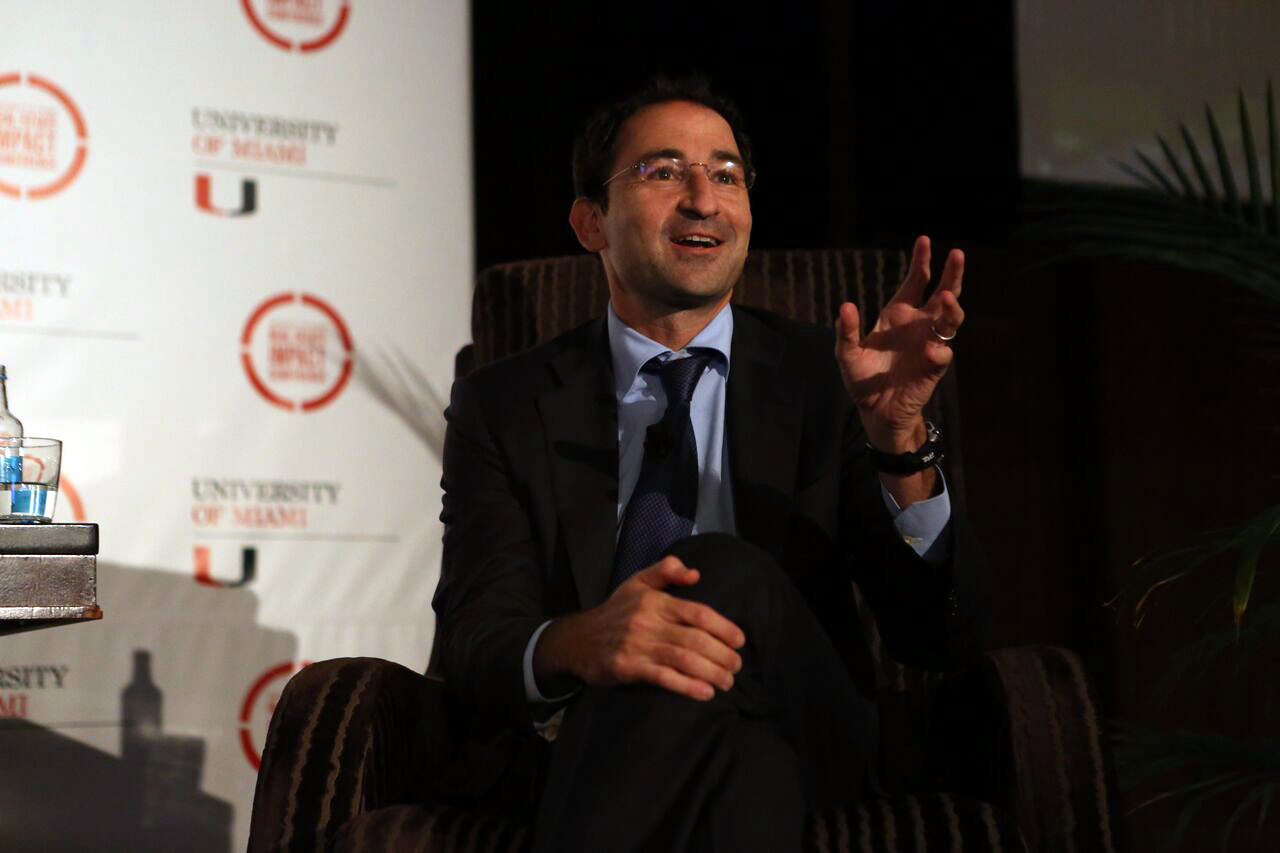Jon Gray, the global head of real estate for the Blackstone Group, doesn’t believe the United States is headed toward a recession this year, and he has a “favorable bias” on Miami and Florida as his firm invests across sectors in South Florida.
“I’m a believer in Miami. I’m a believer in the state of Florida. The key here is having the staying power,” said Gray, the keynote speaker of the University of Miami Real Estate Impact Conference on Thursday at the Four Seasons Hotel Miami.
Blackstone Group, which has $94 billion in equity under management and $175 billion in assets, has a portfolio of 50,000 single-family homes in 13 markets in the United States. One-third of the portfolio is in Florida, and Miami is the biggest market by value, he said. “Home prices have appreciated in a place like this much higher than we underwrote.”
Blackstone‘s philosophy is to buy hard assets at a discount to replacement cost. “We don’t really develop anything,” Gray said. “We would rather have somebody else do the heavy lifting.”
While it costs more and took longer to renovate the homes, home prices appreciated and rentals rose to 96 percent occupancy.
“People want to live here, work here, visit here,” Gray said of Miami. The key to investing, he said, is “you have to have the capital structure and wherewithal to get through it and not have to sell.”
While the markets are reacting amid global uncertainty “much more violently than they did in the past, and no one wants to be the last one left behind,” Gray said he doesn’t foresee a recession this year. “We still see pretty good underlying fundamentals in real estate in the U.S.”
Howard Lorber, who moderated the session, jokingly acknowledged that in Miami “the market for overpriced condominiums has definitely slowed down.”
“In Miami on the beach or in New York on the park, there are more $20 million buyers than $40 million buyers, and more $10 million [buyers] than $5 million, and more $2 million than $5 million,” Lorber said.
“I think the hardest thing to find in Miami is a lot, either on the water or off,” he said.
Gray agreed that the high-end condo market nationally has slowed because the purchases for second homes are more discretionary. He also noted that there is less leverage this cycle than last, which is an advantage. “I do think the next couple of years will be choppy … In general, buyers from the U.S. will be a little more cautious,” he said.
Yet, with Florida’s growing population and desirability, Gray sees the state’s long-term future as positive, particularly in Miami. “We like to buy real estate in times of volatility and hold it for a long period of time.”
